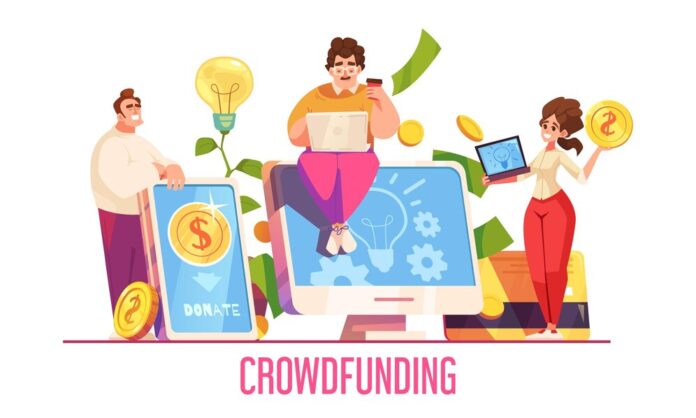Crowdfunding Pros and Cons
In recent years, crowdfunding has emerged as a powerful tool for entrepreneurs, creators, and non-profits seeking to fund their projects. With platforms like Kickstarter, Indiegogo, and GoFundMe, individuals can share their ideas and raise money from a global audience. However, while crowdfunding offers exciting opportunities, it also comes with its own set of challenges. If you’re contemplating a crowdfunding campaign, it’s essential to weigh the pros and cons carefully. Here’s an in-depth look at what you should consider.
The Pros of Crowdfunding
Access to Capital:
Crowdfunding allows you to raise funds without relying on traditional financial institutions or investors. This is particularly beneficial for startups and small businesses that may struggle to secure loans or attract venture capital.
Market Validation:
Launching a crowdfunding campaign can serve as a litmus test for your idea. If people are willing to contribute, it indicates market interest. This feedback can be invaluable in refining your product or service before its official launch.
Building a Community:
Crowdfunding isn’t just about raising money; it’s also about creating a community of supporters. Engaging with backers fosters loyalty and can lead to ongoing relationships that help promote your project long after the campaign ends.
Marketing Exposure:
A well-crafted crowdfunding campaign can attract media attention and social media buzz, providing free marketing that could reach potential customers who might not have otherwise discovered your project.
Flexibility in Funding:
Many crowdfunding platforms offer flexible funding options, allowing you to set your goals and keep whatever funds you raise, even if you don’t meet your target. This can reduce the pressure associated with hitting specific financial milestones.
Creative Control:
Unlike traditional investors who may demand equity or influence over business decisions, crowdfunding allows you to maintain full creative control over your project. You can execute your vision without compromising on essential elements.
The Cons of Crowdfunding
Time-Consuming:
Running a successful crowdfunding campaign requires significant time and effort. You’ll need to plan your strategy, create compelling content, and promote your campaign actively. This can detract from other critical aspects of your project.
No Guaranteed Success:
Crowdfunding is inherently uncertain. Not all campaigns achieve their funding goals, and even well-planned ones can fall short. It’s crucial to have realistic expectations and prepare for potential disappointment.
Public Scrutiny:
Once you launch your campaign, your project will be visible to the public, which can lead to scrutiny and criticism. Negative feedback can impact your morale and the perception of your project.
Fees and Costs:
Most crowdfunding platforms charge fees, typically a percentage of the funds raised. Additionally, you may incur costs related to marketing, production, and shipping rewards, which can eat into your profits.
Fulfillment Challenges:
If your campaign is successful, fulfilling rewards to backers can become a logistical challenge. Managing production, shipping, and communication can be overwhelming, especially for first-time creators.
Risk of Intellectual Property Theft:
Publicly sharing your idea to attract backers exposes it to potential theft or imitation. Without proper protections in place, you could find yourself in a competitive disadvantage if someone replicates your concept.

Tips for a Successful Crowdfunding Campaign
If you decide that crowdfunding is the right path for you, consider these tips to enhance your chances of success:
Research Your Audience: Understand who your potential backers are and tailor your campaign to their interests and preferences.
Set Clear Goals: Define a realistic funding goal and outline how the funds will be used. Transparency is key to gaining trust.
Create Engaging Content: Invest time in producing high-quality videos, images, and descriptions that clearly convey your project’s value.
Plan Your Marketing Strategy: Develop a robust marketing plan to promote your campaign across social media, email newsletters, and other channels.
Engage with Backers: Keep your supporters updated throughout the campaign, and respond promptly to their questions or comments.
Conclusion
Crowdfunding can be a powerful avenue for funding your project, offering unique benefits that traditional financing methods may lack. However, it’s essential to recognize the challenges involved and prepare accordingly. By weighing the pros and cons and approaching your campaign strategically, you can increase your chances of success and turn your vision into reality. Whether you’re a budding entrepreneur or a creative innovator, understanding the landscape of crowdfunding will empower you to make informed decisions for your project’s future.


